Special Edition: Sustainable Sourcing and Waste Reducation
Coffee waste: Biotech startup Kaffe Bueno eyes active potential of spent beans
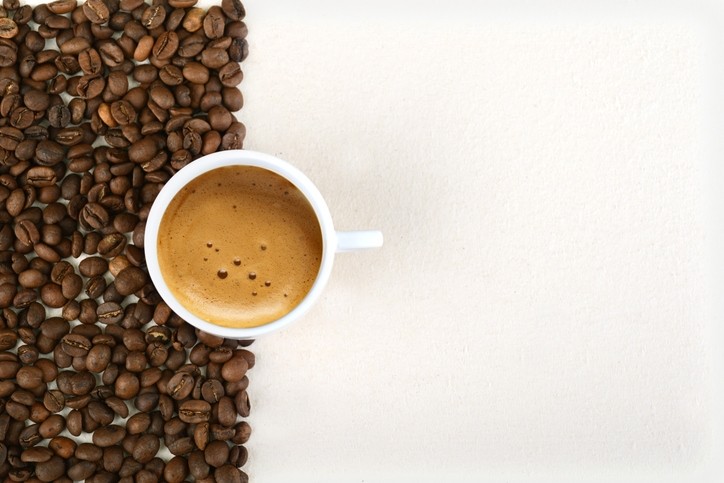
Established four years ago, Denmark-headquartered Kaffe Bueno was founded by three friends with no background in biotech or green chemistry but a passion for creating a sustainable business model, according to Alejandro Franco, co-founder of Kaffe Bueno.
“Last year, coffee was the second-most traded commodity after crude oil. However, when you make a cup of coffee, you’re using less than 1% of the coffee,” Franco said, speaking at a panel webinar at Cosmoprof Bologna Worldwide’s virtual event WeCosmoprof earlier this month.
What remained in the spent coffee grounds, he said, was a wealth of intact health-promoting active and functional compounds, including antioxidants, protein, sugars and fibres that could be used as active or functional ingredients in a range of formulations.
Coffee oil – powerful for anti-ageing, moisturising and skin barrier
Kaffe Bueno launched its coffee oil last year, developed from waste coffee grounds using biotech and green chemistry methods. Rich in linoleic and palmitic acids, polyphenols, tocopherols and diterpene esters, the oil could be used in a range of cosmetics for anti-ageing, moisturising, skin barrier enhancement and even sun protection.
Franco said the oil could certainly be used to functionally replace more commonly used oils on the market but in replacing these, it also improved the carbon footprint and sustainable value of the final product it was used in.
“What we’re doing is positioning it as a potential substitute for specialist oils like argan and rosehip which are usually manufactured in certain countries and then travel thousands of kilometres to reach a destination and they just become a little part of a cosmetic product.”
“…The coffee oil we produce has very similar benefits for the skin, so what we’re proposing is basically to position it as ‘the new argan oil’ in the face of consumers.”
Big beauty brands to drive coffee future, Givaudan signs deal
Kaffe Bueno’s hope was that big brands bought into the idea, Franco said, because it would take brand innovation and consumer education for the concept to truly take off.
“If big brands start to launch more products with coffee oil, it will become better known on the consumer side. Then we’ll know what areas to focus on.”
This week, global flavour and fragrance major Givaudan announced its partnership with Kaffe Bueno to launch Koffee'Up - an elixir made from upcycled Arabica coffee for use in facial care formulations. The two companies signed an exclusive distribution agreement and joint development agreement, granting Givaudan exclusive global distribution rights of Kaffe Bueno's coffee oil under the commercialised 'Koffee'Up' brand.
Laurent Bourdeau, head of Active Beauty at Givaudan, said the company was thrilled with the “unique collaboration" between Givaudan and Kaffe Bueno and eager to start incorporating the ingredient in formulations for beauty customers. "The high quality, traceable and upcycled ingredients used in Koffee’Up showcases a prosperous new avenue for using sustainable coffee in the world of beauty. This is a big achievement and opportunity, and we’re looking forward to presenting this innovative beauty elixir to customers.”
Franco said the launch reinstated that upcycled products were "no longer a trend", but a "global need" to make better use of the planet's limited resources.
"This partnership certainly sets Kaffe Bueno a step closer to unlocking coffee’s full health, wellbeing and commercial potential,” he said.
Coffee waste R&D – a carbon light cosmetics choice
In addition to the oil, Kaffe Bueno also offered an exfoliant ingredient made from the remaining spent coffee grounds that could be used to replace microbeads in personal care and beauty formulas.
Franco said the company was now working to develop a wealth of further coffee waste-based ingredients for cosmetics.
“Today, we only have the oil and grounds but we’re working on a lot of different products by fractioning both the grounds and the oils into individual antioxidants, sugars and a lot of other things used in cosmetic industries.”
Importantly, these ingredients offered an extremely strong sustainability profile.
Most coffee waste ended up in landfills, creating “tons of methane”, he said – 340 cubic-metres per tonne of coffee treated as waste, to be precise.
“Emissions from coffee waste only are the equivalent to ten million round-trips from New York to Paris,” he said.
Kaffe Bueno’s vision for the future, he said, was to eventually establish a decentralised system of biorefineries around to world to source local coffee grounds that could be used as a source for powerful active and functional ingredients.
This would avoid unnecessary carbon emissions and provide “innovative, sustainable products that are competitive and less volatile than other natural ingredients”, he said.
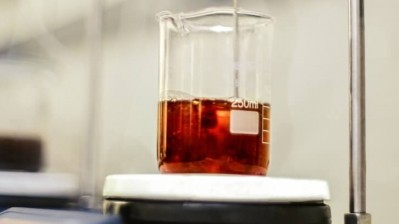
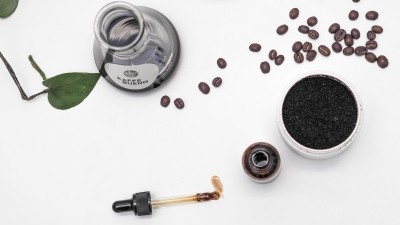
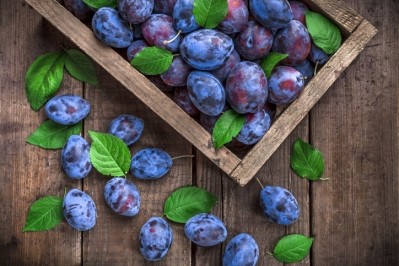
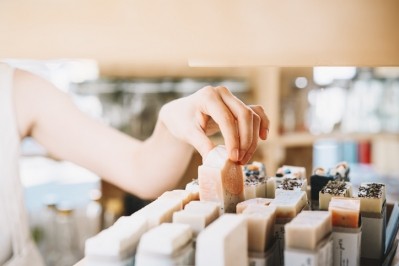

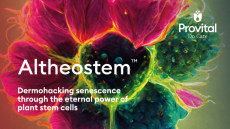




![Chinese study highlights mental health challenges in atopic dermatitis, emphasising holistic patient care. [Getty Images]](https://www.cosmeticsdesign-europe.com/var/wrbm_gb_food_pharma/storage/images/_aliases/wrbm_tiny/publications/cosmetics/cosmeticsdesign-asia.com/headlines/formulation-science/chinese-research-linking-atopic-dermatitis-to-mental-health-underscores-need-for-holistic-care/17040623-1-eng-GB/Chinese-research-linking-atopic-dermatitis-to-mental-health-underscores-need-for-holistic-care.jpg)








